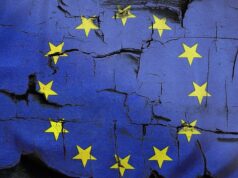The association Uniter was noticed in connection with a right-wing extremist network. According to a report, there is a direct link to the protection of the Constitution.
An employee of the State Office for the Protection of the Constitution (LfV) Baden-Württemberg co-founded the association Uniter eV, which was noticed in connection with a far-right network with members from security authorities. As the taz reports, citing several independent sources, the LfV employee also sat on the board of the association. Accordingly, he resigned from the Board of Directors in early 2017, but is still registered in the club register.
The club, which has carried out taz -Recherchen military combat training, was known by the former KSK soldier André S. He is not only deputy club chairman, but has also administered under the name Hannibal chat groups in which so-called Prepper on a Prepared for „Day X“.
Attorney General observes Uniter eV
The Attorney General investigates in this context against several men because of „preparation of a serious state-damaging violence“. Among other things, the accused should have led enemy lists and discussed the killing of political opponents. One of the chats also belonged to the German army soldier Franco A., who is accused of terror charges. According taz, there are large personnel and structural overlaps between the chat groups and the association Uniter eV, to which the Attorney General has created a so-called observation process. He examines the meaning of the case and its criminal relevance.
According to information from the newspaper, the LfV also has at least one informant who informs the protection of the constitution about events of the association. On taz request informed LfV spokesman Georg Spielberg, the association Uniter eV is not an object of observation of the constitutional protection Baden-Württemberg, „because there is no sufficient evidence that it is an aspiration against the liberal democratic constitution“.
Also on the LfV employee, who co-founded the association Uniter, the authority would like to express itself for reasons of the protection of privacy not publicly.



